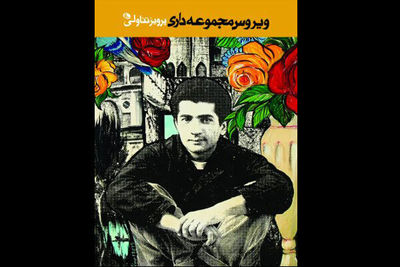The book, which carries pictures of various objects the Canada-based Iranian artist has collected during his life, has recently been published by the Nazar publishing house in Tehran.
In a preface to the book, Tanavoli has written, “The craze for making collections had captured my soul during childhood and as time passed, it was turned into a permanent trend when I was a teenager.”
“The mania that had captured my soul was really different from what governmental officials have.
“Some collectors insist on collecting everything; some of them only collect renowned objects; some of them also only regard the quantity of the objects, but my mania was for making collections of odd and rare items.
“Although the central theme in my movement was the traditional Iranian industries, I did not ignore contemporary art. Therefore, I never could achieve what I wanted in contemporary art and my findings in this category would never go beyond what has been reflected in the book.”
The book is composed of two sections, first of which covers the items collected during the 1960s and 1970s and the second section features the objects amassed over the past two decades.
Tanavoli, mostly famous for his sculpture series “Heech” (meaning “nil” in Persian), is the author of numerous books on traditional Iranian arts and industries.
Among the books are “Shahsavan Iranian rugs and textiles”, “Persian Flatweaves”, “Bread and Salt, Iranian Tribal Spreads and Salt Bags”, “Locks from Iran: Pre-Islamic to Twentieth Century: Tanavoli Collection” and “European Women in Persian Houses: Western Images in Safavid and Qajar Iran”.
In 2016, he unveiled his first artist’s book “Things and Nothings” at Tehran’s Art Center. The book, which has been produced in a limited edition, contains prints of Tanavoli’s works created during the various periods of his art career spanning over a half century.
Tanavoli is considered one of the pioneers of the Saqqakhaneh School, a neo-traditional style of art that began in the 1960s and derives inspiration from Iranian folk art and culture.
The school takes its name from saqqakhaneh, a public drinking place located in the old districts of Iranian cities and Islamic holy sites. Saqqakhanehs are usually embellished with motifs representing people’s traditional beliefs and their enduring feelings about the religious sites.
Source: Tehran Times

